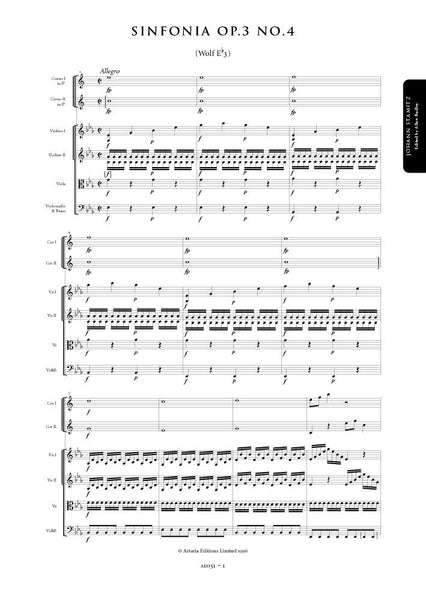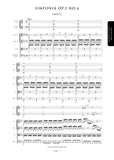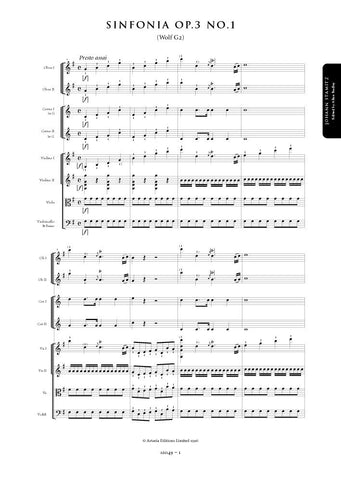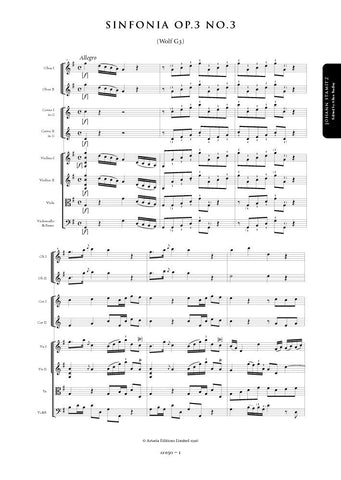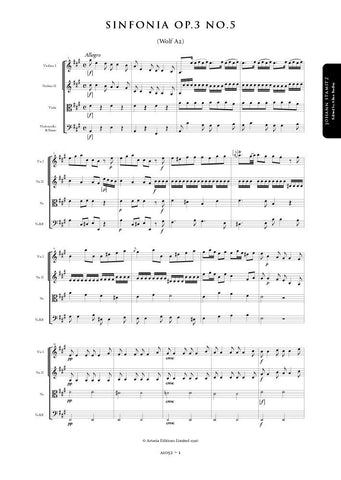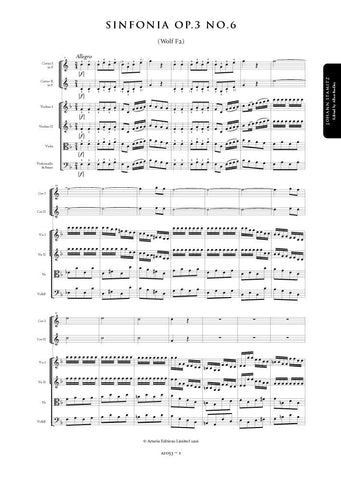Description |
Stamitz, Johann (1717-1757)
|
||||||||||||||||||
Details |
The six symphonies published in Paris in 1757 as Opus 3 were not conceived as a set and indeed appear to have been composed over a period of up to nine years. It is not known whether Stamitz was responsible for selecting the works to be published or whether, in the timehonoured fashion of music publishing in Paris, the works were issued without the composer's knowledge or consent. The title page of the Huberty print reads: "SIX / SYMPHONIES / Quatre parties obliges, / avec les Cors de Chasses / Ad libitum. / Composes / PAR MR STAMITZ. / OEuvre IIIe [sic]..." According to Wolf, the present work, which appears as the fourth of the set, dates from the years 1750- 1752 although it might have been composed even earlier. The scoring may have originally included oboes as at least four works in Op.3 omit authentic oboe parts. There is no indication, however, that the work was originally conceived in four movements. In the absence of the autograph score or an authentic set of parts, this edition presents as faithfully as possible the intentions of the composer as transmitted in the Huberty print. The major exception is that the basso continuo figuring, probably not the work of Stamitz himself, has been omitted. The notation of articulation and dynamic markings has been standardized, and, where missing from the source, reconstructed from parallel passages. These are indicated by the use of dotted slurs or brackets where appropriate. Like most eighteenth-century sources, the Huberty print is inconsistent in its notation of appoggiature; these have also been standardized to minimize confusion. Obvious wrong notes have been silently corrected; otherwise, any editorial emendation with no authority from the source is placed within brackets. Allan Badley |
||||||||||||||||||
Audio sample |
Loading...
Error




